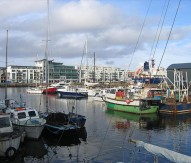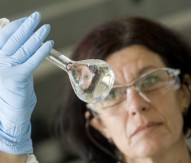
Investing in a healthy society
Europe’s population is ageing and within the next seven years, a quarter of all EU citizens will be over the age of 60. An aging population presents a number of new challenges and defining to resolve these issues was the main focus of the speech of Máire Geoghegan-Quinn, European Commissioner for Research, Innovation and Science, to delegates at the ‘EU Summit on Active and Healthy Ageing’ in Dublin, Ireland.
Cited as on the key Societal Challenges under Horizon 2020, ‘Health, demographic change and wellbeing’ is expected to receive an estimated investment budget of €8bn under the next framework programme, by far the greatest funding allocation under the pillar. Speaking to delegates, the Commissioner outlined how the EU had already invested over €340m in health-related ageing research.
“In the Health theme of FP7, 27 research projects with an overall value of €133m cover important ageing-related issues such as comorbidity of diseases, poly-medication, technology and devices, frailty and falls. A further €400m has been invested in research on neurodegenerative diseases, including Alzheimer’s. The challenge-based approach of Horizon 2020 fits perfectly with the pressing need to address issues resulting from demographic change and ageing.
“We need excellence in research to improve our understanding of health, disease, development and ageing and to translate this knowledge into innovative and effective products, strategies, interventions and services for the benefit of patients and all citizens. Developing these new products and technologies will mean opportunities for competitive European industries, and public service innovation will save money in hard-pressed national and regional health services.”
Social innovation
A goal of the Commission will be to deliver personalised healthcare and medicine to many of the EU’s citizens, enabling safer and more effective and treatment as well as helping to reduce healthcare costs. Horizon 2020 also focuses on bringing more new products to market and the Commission has identified the need for both technological and social solutions.
“Horizon 2020 will support innovation actions as well as collaborative research. This means that we can support actions from basic and clinical research right through to market deployment. We also need to support, through research and innovation pilots, a broader uptake of technological, organisational and social innovations, that can empower older people and people with disabilities to remain active and independent,” said Geoghegan-Quinn.
“The responses and solutions cannot just be technological – this is an area where social innovation is paramount – we need to remember that we are dealing with real people and their needs, their responses to innovation and new treatments – their responses to new ways of working and to new ways of living.”
Societal challenges
Humanities research can provide a valuable insight into the long-term prospects for society by assessing ageing and demographic changes. By assessing the statistics and involving older people in the solutions, the Commissioner outlined how this would allow policy makers and other key stakeholders to develop the right solutions.
“Society, family models and the structure of the labour market are all changing. This is why the EU has invested a great deal in socio-economic research related to ageing. Researchers have analysed reproduction choices to uncover the reasons behind Europe’s low birth rates. They have investigated the conditions that enable older people to remain active in the workforce where they can and wish to and researchers have developed models to provide insights into the economic consequences of ageing in the years to come.
“In the last year of FP7, there have been further opportunities to investigate the impact of ageing societies on public finances in Europe – a crucial question in the current climate. Yet the major research and innovation investments under FP7 and Horizon 2020 are only part of the story. The complex and important challenges and opportunities of ageing and demographic change have sent decision-makers at European level back to the drawing board to think about how to be more innovative in designing policies and initiatives.”
EIP
Also helping to provide solutions to long-term ageing is the Commission’s ‘European Innovation Partnership (EIP) on Active and Healthy Ageing’. The EIP was launched in 2011 and aims to increase the healthy lifespan of EU citizens by two years by 2020. The partnership brings together member states, regional and local authorities, civil society and the private sector from across Europe, supporting international collaboration. EIPs will continue to play a role in Horizon 2020 and support the discovery of solutions for this and other Societal Challenges.
“The partnership is piloting a new approach to co-operation between stakeholders on research and innovation and is now moving at full speed to turn the strategy for active and healthy ageing into reality. It entails close co-operation across the research and innovation cycle, from the supply and demand sides, and across sectors and policies, from public health, to digital, to industrial and innovation policies. The EIP seeks to translate innovative ideas into tangible products and services that respond to the concrete needs of the ageing and elderly,” Geoghegan-Quinn continued.
“By co-ordinating more EU research agendas and fully exploiting the power of innovation, Europe can stride ahead. Here, social innovation, with the aim of achieving social impact, will play a crucial role in many sectors, e.g. employment, health, transport and social security.
“Europe’s silver society can offer golden opportunities and today’s research and innovation challenges can open up a gold mine for our economy.”
Máire Geoghegan-Quinn




